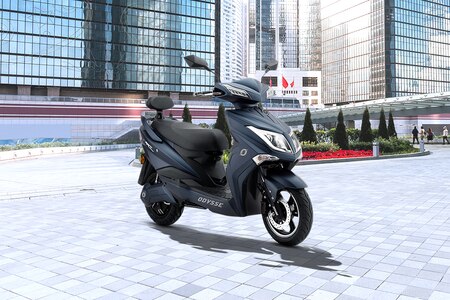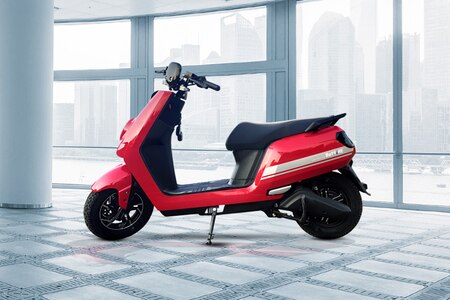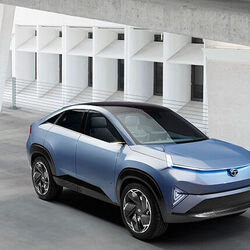Affordable electric vehicle is still mostly fantasy
- With battery supplies tight and customers eager, car companies are only cranking out expensive EVs.


Jack Norton, a history professor in Minneapolis, started shopping for an electric vehicle early last year. His requirements were simple: all-wheel drive and a price tag under $55,000.
Also Read : This Indian state records six times growth in EV sales
At first, Norton noticed that few EVs were being shipped to Minnesota, where car companies are contending with looser emissions mandates than in much of the US. So he expanded his search to other states — and then came the sticker shock. The scant electric models Norton could track down at dealerships were only available in top trims and for amounts far above the starting prices he’d seen in ads and product launch presentations.
Also check these Vehicles
“You know what vaporware is — when someone advertises some great new software that doesn’t actually exist?" he asks. “That’s what’s happening in EVs."
Much has been written about unctuous car salesmen adding “market-adjustment" fees to capitalize on the current supply-demand imbalance of vehicles. But while that’s certainly an issue, most electric machines are getting pushed up to luxury-car levels far earlier — before even leaving the factory. In July, the average US starting price for a battery-powered vehicle — the figure shown in car commercials and marketing materials — was $47,636. The average sticker price for EVs that were actually made and shipped to dealerships, however, was $61,251, almost one-third higher, according to Edmunds. It’s not that auto companies don’t have affordable electric cars; it’s just that they aren’t making them, choosing instead to crank out more lavish (and profitable) versions.
The largest gaps between the promised starting price and available inventory are evident in the most popular models. Kia’s EV6, a hot seller of late, had an average sticker price of almost $54,200 in July, 32% above the starting price Kia has crowed about since launching the car. The pragmatic Chevrolet Bolt — purportedly the most affordable EV in the US at $26,595 — was selling for almost one-third more this summer, at $34,874 on average.
John Fitzgerald Weaver, who lives in Boston and builds commercial solar farms, had to schlep to Long Island to find a Hyundai Ioniq 5 without all-wheel drive — the only variant less than $47,500. “When I saw they had it, I was like ‘Sweet, I’ll buy this today,’" he says. No matter that the car came with an extra $1,000 fee, and wouldn’t arrive for more than a month.
Of course, there are sound economics behind all this. Arguably for the first time ever, the companies making and selling cars have more demand than supply, according to Edmunds analyst Ivan Drury. Increasing supply takes time, particularly with a new technology like electric drivetrains, and car companies are rushing to add assembly lines and source batteries. In the meantime, they’re pushing prices up.
Exacerbating that dynamic is the fact that so many of the current parade of EVs are brand new. In the months after a new vehicle debuts — gas-powered or electric — companies tend to prioritize fancier versions with cutting-edge features, in part because early customers are the most eager and spendthrift.
Perhaps nowhere is this tension more clear than at Ford Motor’s Rouge complex just west of Detroit, where the company cranks out both gas F-150 pickups and the battery-powered version dubbed Lightning. Ford hopes to have the capacity to make 150,000 Lightnings a year by the end of 2023, but for now is putting out roughly four or five times as many gas-powered F-150s. While the Lightning can in theory be had for just shy of $40,000, in July it sold for more than double that amount, on average. Ford said via email that the cheaper “pro" version of the electric pickup has been limited to one in five trucks on the assembly line as it hustles to chip away at an overflowing order book.
General Motors, meanwhile, pushed the affordable-EV narrative again this month, unveiling an electric version of its Chevrolet Equinox SUV that it says will start selling for as little as $30,000. “To get to a high volume of EVs you have to reach the mainstream market," CEO Mary Barra told Bloomberg Television.
Drury at Edmunds thinks it will be at least two years before a critical mass of battery-powered cars sell at that price point. “Under $30,000, that’s the dream," he says, “but it seems borderline impossible."
For now, customers aren’t exactly balking. The spread between starting and sticker prices is also massive on gas-powered cars these days, although more pronounced with EVs, which are 30% to 40% more expensive on average. EV buyers already tend to be more affluent, and with auto loans lasting as long as eight years, many are comfortable purchasing higher-trim variants or stacking up expensive options.
“It kind of self-selects," Drury says. “You already have people who have the means to option up a vehicle and if this is their first time in an EV … they’re going to treat it as a milestone purchase."
But affordability is arguably the single largest hurdle remaining when it comes to the more widespread EV adoption that will be necessary to curb emissions. Despite several dozen mainstream electric models entering the market in the past few years, a wide swath of Americans still can’t afford to make the switch. The average EV sticker price in July was also well above the $55,000 threshold for cars to qualify for the latest round of federal tax incentives.
Hyundai, for its part, noted via email that most of its new vehicles tend to attract customers keen on added features, even at higher price points. At the moment, the company says 38% of the Ioniq 5 models it’s making are the base variant, a share that it expects to increase “with the normal progression of lifecycle buyer stages."
This logic, however, doesn’t scan with Norton. He thinks car companies should have been hustling to expand EV production earlier and suspects auto executives are just trying to squeeze profits out of gas engines while they still can. “The argument car companies make is essentially ‘capitalism is working,’" he says. “But I teach economic history and what I’m seeing are artificial constraints."
Norton gave up on buying a full EV a few months ago and settled for a hybrid Honda CR-V. It was loaded with a bunch of options he didn’t care about, though still came out around $46,000. Plus, it was available — sort of. “Last we heard," Norton says, “they’re building it this week."








 64.8 kWh
64.8 kWh 418 Km
418 Km


















